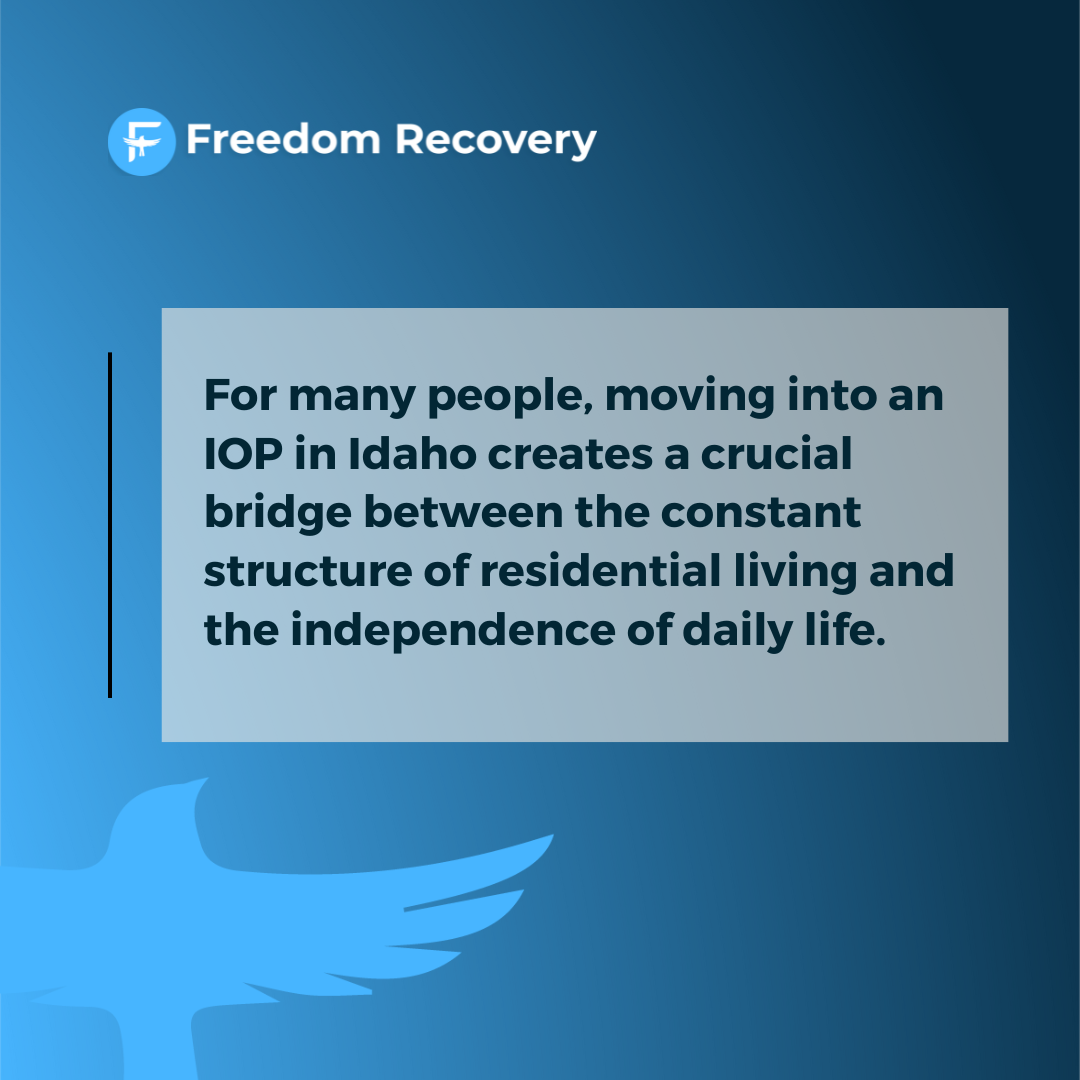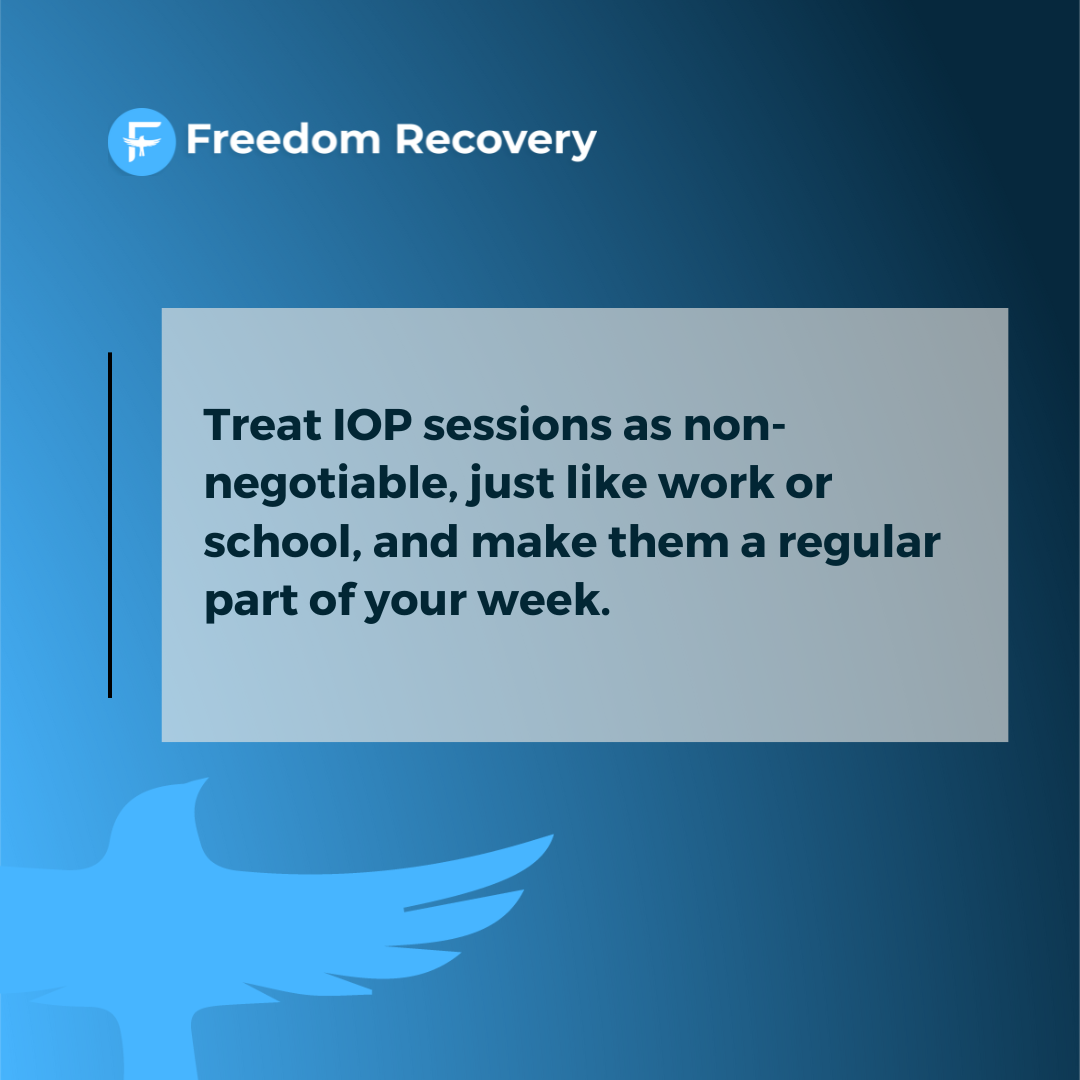

So, you’ve once searched for “inpatient residential treatment near me,” and now you’ve completed the program. While it’s a powerful milestone, recovery doesn’t stop when you leave the facility.
The real challenge is learning to carry that progress into everyday routines, responsibilities, and relationships. And this is where an Intensive Outpatient Program (IOP) becomes helpful.
The most reputable drug rehab centers Idaho has to offer provide IOPs to help people stay accountable while regaining independence. These programs provide continued therapy, support, and structure so you can strengthen the foundation you built in residential care.
In this blog, we’ll explore how to make a smooth transition from inpatient treatment to IOP and why this step is so crucial for long-term recovery.

Completing inpatient care doesn’t mean your recovery journey has already come to a close. If anything, recovery is a lifelong process that requires consistent support.
That’s why stepping into outpatient treatment is incredibly important.
For many people, moving into an IOP in Idaho creates a crucial bridge between the constant structure of residential living and the independence of daily life.
IOP gives you the opportunity to test your recovery skills in the real world while still being connected to therapy, accountability, and a supportive community. This balance helps reduce the risk of relapse, strengthens coping mechanisms, and allows you to gradually rebuild confidence outside of 24/7 care.
When exploring recovery options, it’s important to understand how inpatient care and intensive outpatient programs (IOP) differ. Both provide valuable support, but they serve people at different stages of recovery and with different needs.
Inpatient care provides 24/7 supervision and structure, making it especially valuable to you if you’re in detox or the earliest stages of recovery. This level of treatment focuses on safety, stabilization, and helping you step away from everyday triggers that may fuel substance use.
By living on-site in a fully supportive environment, you can dedicate all of your energy to healing without outside distractions.
In a nutshell, IOPs allow you to begin weaving recovery into your everyday lives. These programs typically meet three to five days a week, often with flexible day or evening sessions to accommodate work, school, or family responsibilities.
While still providing therapy, accountability, and peer support, IOP gives you the chance to practice coping skills and relapse prevention strategies in real-world settings while maintaining strong connections to your recovery community.

Stepping down from inpatient care into an IOP is an important decision — and timing matters.
So, how do you know if you’re ready for this program? Here are some ways to gauge your readiness:

Making the move from inpatient residential treatment near me to an IOP is indeed a big shift. However, with the right approach, you can make the transition smoother.
Below are some essential tips:
When you leave inpatient residential treatment near me, your care team usually provides a detailed discharge or aftercare plan. This often includes recommendations for IOP, therapy schedules, and community support. Sticking to that plan ensures you stay on track and continue building momentum in recovery.
Not every program works for everyone, so it’s important to choose an IOP that matches your needs, goals, and schedule. For example, if you’re looking in Idaho, tools like Google Maps can help you explore nearby options and compare services. The right fit increases your chances of long-term success.
Consistency is one of the most powerful tools in recovery. Treat IOP sessions as non-negotiable, just like work or school, and make them a regular part of your week. By showing up consistently, you strengthen healthy routines and reinforce your commitment to sobriety.
Your therapists and group leaders can only help if they know what you’re experiencing. Be honest about your struggles, what’s working, and where you feel stuck. Open communication ensures your treatment can be adjusted to meet your changing needs.
When you step down from a residential inpatient program, an IOP gives you the structure and support you still need without the 24/7 setting.
You can expect a mix of group therapy, individual counseling, regular drug testing, and relapse prevention strategies that keep you accountable.
Many programs also add trauma-focused therapy, life skills training, family involvement, and ongoing mental health support to strengthen your recovery. In fact, several drug rehab centers in Idaho now offer IOP specifically as a bridge after inpatient care, making it easier to stay on track while reentering daily life.

After completing inpatient residential treatment near me, continuing into an IOP helps you keep momentum while adjusting to the demands of everyday life. This step ensures that the progress you made in residential care doesn’t stall but instead grows stronger as you reenter work, family, and community life.
With ongoing therapy, peer support, and accountability, IOP provides the structure you need without taking you completely out of your routine. And here at Freedom Recovery, we’re equipped and ready to help you build that momentum into lasting recovery.
Explore our programs today and see how the right support can carry you forward. Contact our team!

Learn the early signs of alcoholic dementia and how excessive alcohol intake can impact the brain in the long run.

Discover signs of relapse and why it’s vital to seek support from drug rehab Idaho programs.
-min.jpg)
Discover what a successful rehab is and learn how recovery goes beyond completing treatment. Explore flexible options like intensive outpatient programs.